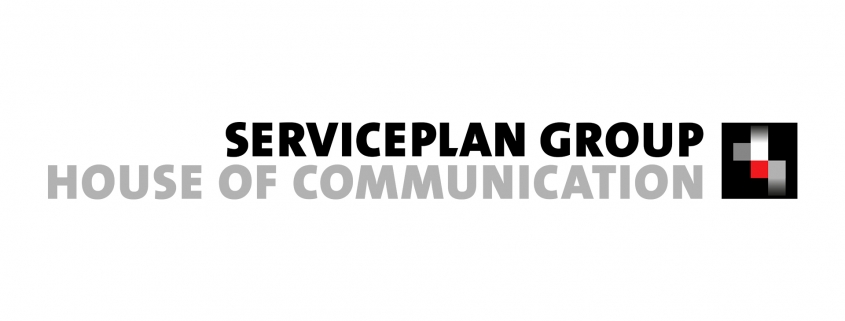We asked three of our speakers from the “International Roadshow: France Insights” the same four questions. The challenge to avoid stereotypical responses to bold questions, was accepted by Bertrand Beaudichon, CEO and Co-Founder of Mediaplus in France, Alexander Wurz, expert in intercultural management and owner of Open-i-Consulting, and Florence Delobel, Consultant for successful brands like Andros, Bonne Maman and many more.
Here are their answers:
 Bertrand Beaudichon
Bertrand Beaudichon
(Session 2 “Today’s French consumer”)
How would you describe „The French way of doing business“?
Let’s start with French people:
Looking at a map, France is at the exact middle between Northern and Southern countries. This simple observation dictates quite well the French way of doing business. Indeed, French businessmen are the perfect mix between northern rationality and southern emotionality. Which means that French are highly analytics and do love concepts and abstractions, which makes French people creative and quite good in innovation and technology. But which means also that human relationship is of a major importance. French are proud, love (long) business lunches, and often think that foreigners consider them as part of declining country. Thus, a love declaration to French products and technology (and not, as always, its wine, cheese, food and cultural or tourism patrimony) is a great idea to start a positive business relationship. Also, as most of southern countries, the average level of foreign languages skill is quite low. And because French are proud, they won’t tell you they don’t understand your English. So, do not hesitate to speak slowly and make sure you’ve been well understood! In terms of business, French consumers are very attractive, do love brands, and consuming is more or more seen as a way to escape from a gloomy economic context.
Now that the partner is described, let’s talk about the playground.
In terms of business, 80% of France is Paris. Which makes it easier than in Germany to start a business in France: A headquarter in Paris will be enough to cover your French business. But this also creates a good opportunity, when a German company talks to a non-parisian company (what we call here quite negatively a “regional company”), to acknowledge what being a regional company means. Regional companies do fight all days to be considered as national actors, even if not Parisian. The German federal model, in this field, helps creating a better community of spirit with such regional companies.
Then, the regulatory environment. France is, and considers itself, as the most complicated system of regulation and tax. And guess what, it is very true. So, do not even think setting up a business in France with a non-national and very skilled set of lawyers and accountants, which will help you decode what is and is not to be done. Finally, they will help you finding your way, and maintain your competitiveness… because, finally, there is always a way!
Is “Made in Germany” a sales point in France or a no-go?
Well, don’t take it wrong, but it highly depends on the industry! For industrial, chemicals, automotive, technology, the German label is definitely a great, great selling point. A label of quality, long-term lasting and reliable technology for manufactured things. For example, a great number of German automotive brands (Audi, Volkswagen, Opel) do claim their german-ity in their advertising…
But if the industry is a more creative one, like fashion, design, or food… let’s be more discrete on your origin, and let’s pretend you’re French or Italian 🙂
How would you describe the French consumer in three words?
Sense seeker, individualist and all-screens addict.
How can brands benefit from the Franco-German friendship?
Franco-German friendship is real, and not only a story of politicians. Thus, a German player claiming doing business in the name of this friendship, especially when competing against other non-french countries will take a good advantage.
 Alexander Wurz
Alexander Wurz
(Session 4 „Do you speak my culture? – The French way of doing business” and guest author)
How would you describe „The French way of doing business“?
French have tendency to put more emphasis on personal relationships and emotions when doing business. It is not enough, to “convince” the other side but also to “seduce”. The French word “séduction” is used very often and is key for successful business in this country!
Which market is more competitive, the French or the German market?
When you look at the official rankings of “World Competitiveness Ranking”, Germany is more competitive. But I don’t think that we should only look at numbers to answer this question. There are many examples where French products are better than German ones. And a French would say: competitiveness is not everything in life. What about nice, good looking, seducing and sexy products…?
Is “Made in Germany” a sales point in France or a no-go?
Yes and no. French recognize and respect definitely the high-quality products coming from Germany, mainly from the technical industry. But on the other hand, I hear them often say that German products are sometimes too perfect, therefore too expensive and often not “sexy” (regarding the design or the presentation).
How would you describe the French consumer in three words?
Higher distrust (than Germans), playful, more intuitive and spontaneous (than Germans)
How would you describe the German consumer in three words?
Facts-oriented and well informed, less flexible, easier to manipulate (than for example the French)
How can brands benefit from the Franco-German friendship?
A lot! Germans and French cultures are a bit like the left side and the right side of our brain. The one with more focus on facts, logical thinking and rational approach and the other one one emotions, abstract thinking, creativity and intuition. Imagine if we put these two sides together! There is no better synergy than these two cultures.
 Florence Delobel
Florence Delobel
(Session 5 “Best Practice from Andros, the leader on a highly competitive FMCG market”)
How would you describe „The French way of doing business“?
I would like to talk about distribution and particularly the relationship between suppliers and buyers. In France the relationship is very harmonious, but often the demands are not clearly expressed. Everyone keeps to his/her role, not disclosing very much. Negotiations can be long, over several meetings before clear needs are expressed. Often tensions can run high and there can often be unpleasant moments before coming to an agreement.
Which market is more competitive, the French or the German market?
Both markets have strengths and weaknesses. If one takes the example of agribusiness, the French are creative gourmets and enjoy inventing different, well-presented, premium products. They are capable of producing things in small quantities for a tailored audience. Prices are often high to reflect this. Whereas the Germans are more competitive with larger production adjusted to their own market. They produce good-quality, well-presented products at lower prices. They don’t, however, offer a wide variety of flavours or different styles/assortments, they keep to standard products.
Is “Made in Germany” a sales point in France or a no-go?
All depends on which sector of activity we are talking about. I would say that in agribusiness it isn’t the most attractive aspect. The image of German products is linked to hard discount such as Lidl and Aldi, which are not always synonymous with quality products. The two nation’s tastes are different too on a wide range of products; it isn’t easy to impose new taste on a country that prides itself for its Gastronomy!
How would you describe the French consumer in three words?
Demanding (they want everything quality/price/service), fickle (they like innovation), well-informed (connected)
How would you describe the German consumer in three words?
I don’t know the market that well, but the words that come to mind are rational, efficient and direct…
How can brands benefit from the Franco-German friendship?
If one combines French and German strengths we would come up with perfect products: good production, competitive pricing, great quality, but also beautiful design, delicious and creative. The best of all worlds!
 Bertrand Beaudichon, Alexander Wurz and Florence Delobel will lecture at the Serviceplan International Roadshow France // 8 June 2016 – 2 pm // House of Communication in Munich.
Bertrand Beaudichon, Alexander Wurz and Florence Delobel will lecture at the Serviceplan International Roadshow France // 8 June 2016 – 2 pm // House of Communication in Munich.
If you like to join our event and meet our interview partners in person please contact our organisation team at international@serviceplan.com.

